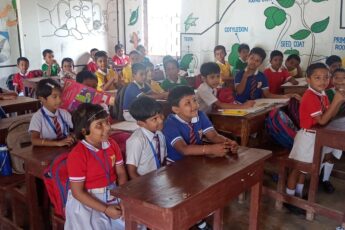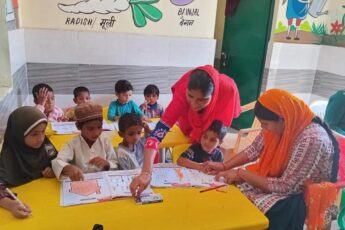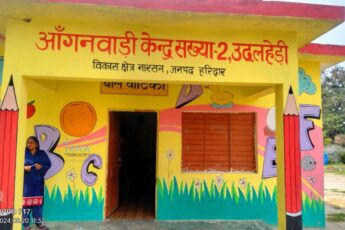Assessments Reimagined: How The NEP 2020 Plans To Change Learning Outcomes Forever

The NEP 2020 gives some much-needed attention to the role of assessments in education. In their vision to better the Indian educational landscape, the Ministry of Education is moving away from the old method of assessing, learning and reimagining the entire system to make use of this powerful tool correctly.
Presently, assessments in India, particularly in ECCE, garner no clear data to show the actual learning outcomes at the lower grades, particularly at key stages of transition, from primary to middle school, and then to senior. Thus, there is no opportunity for correction, leaving these young children with learning gaps until much later in life. “Assessment is more than adding remarks to a child’s mark sheet. *Watch us cover insightful educational topics for parents and educators, each week, in the Square Panda Sundays Expert Talk series!
The policy mentions assessments as one of its foundational principles, stating that there is a need to ‘focus on regular formative assessment for learning rather than the summative assessment that encourages today’s coaching culture’. Essentially, for a sturdy foundational learning base where young students achieve appropriate developmental goals, the education system needs to adopt a more formative assessment approach, as opposed to the current summative format.
*Formative Assessment is a wide range of formal and informal methods teachers use to evaluate student comprehension, learning needs, and academic progress, so they can modify their teaching and learning activities to improve student attainment. Some common methods include quizzes, conversations, activities, and more.
*Summative Assessment is taken at the end of instruction, usually conducted at the end of each term. This pen-and-paper approach takes the form of Board exams and terminal exams.
What Will Change
– Report Cards: No longer the same ‘mark sheet’, report cards will include details of each child’s development in the cognitive, affective, and psychomotor domains. It will also show self-assessment and peer assessment, and progress of the child in project-based and inquiry-based learning, quizzes, role plays, group work, portfolios, etc., along with the teacher’s assessment.
– AI-based Software To Support Students: The policy also supports the development and usage of AI-based software like Square Panda’s very own built-in assessment tool, which monitors real-time progress through our early learning platform, allowing educators and parents insight into each child’s learning process.
– School Examinations: To effectively track progress throughout the school years and not just at the end of grades 10 and 12, all students will take school examinations in Grades 3, 5, and 8, to test learning outcomes and application of knowledge in real-life, rather than focus on rote memorisation. Grade 3 examinations, in particular, will test students on the acquisition of foundational skills like early literacy, numeracy, and more.
– PARAKH: A new National Assessment Centre called (Performance Assessment, Review, and Analysis of Knowledge for Holistic Development) or PARAKH, has been proposed to be set up, to create basic assessment standards to be followed by all educational bodies. Coming under the purview of the Ministry of Education, this move could change the Indian educational sector forever, creating a new regulatory body for quality checks, and providing regular student data for better learning outcomes.
The Impact Of NEP-Reimagined Assessments
The aim of the NEP 2020 is to get in place a system of ongoing assessments right from the foundational level, to track and individualise each student’s learning. The potential impact such a system could have on the Indian educational system:
- Focuses On The Right Learning Outcomes: A formative style of assessment analyses critical thinking skills, clarity of concepts, and overall skill development, rather than simply checking memory stores of students at the end of the year.
- Stress-Free Learning: This new culture of evaluating the learning will help make the assessment process non-threatening for the students, reducing their exam fear to a great extent.
- Continuously Measuring Classroom Performance: A formative assessment style is typically periodic in nature, and involves an ongoing effort by educators. This showcases each student’s growth pattern throughout the year, while allowing the teacher to address individual children’s challenges in real-time, rather than wait for the year-end results.
There is a need for a robust system of assessment to help educators evaluate the progress of each student, and identify their strengths and weaknesses. This will help improve teaching methods as they identify the gaps in their teaching. The pace of learning for all the children is not the same and effective assessment tools will help educators understand the different learning levels of each child, which in turn will help them to customize the learning techniques as per each learner’s needs, something that the NEP 2020 is striving towards.
*Square Panda’s foundational learning programs and educator empowerment programs include continuous monitoring and assessments that are perfectly aligned with the NEP 2020’s vision.
What are your thoughts on the assessment system as the NEP envisions it? What would you like to see?




Leave a Comment